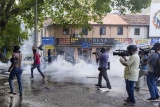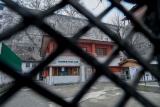Amantha Perera
Recent Posts by Amantha Perera

Preparing for assignments in unstable and unpredictable environments: Ten tips from Dart Centre Asia Pacific
Journalists covering the recent earthquake in Turkey and war-ravaged Syria are witnessing widespread devastation and destruction, where tangled piles of metal and concrete are spread across a region beset by Syria’s 12-year civil war and refugee crisis.
Working in frigid temperatures and confronting escalating dangers, journalists are documenting history from the frontline of the disaster.
There are many other areas around the world, particularly in humanitarian crisis and conflict zones, where it is dangerous, even life-threatening, to practice journalism. The war in Ukraine provides another recent illustration of the vulnerability of journalists covering crisis situations. While it is impossible to mitigate all of the risks journalists on the frontline will be exposed to, there are certain things they can do to prepare for assignments in unstable and unpredictable environments.
This tip sheet from Dart Centre Asia Pacific provides ten tips for journalists and media workers that have been developed in conversation with experts who have responded to conflicts, disasters, and humanitarian disasters around the globe.

Reporting a traumatic community event - resources for media workers
December 13, 2022 by Amantha Perera, Helen ZahosReporting a community tragedy can impact media workers, their managers, and their loved ones acutely. Those impacts can be potentially immediate, delayed or long-term. As each of these media workers – and their managers – digest the ramifications, personal and professional, of this tragedy, the Dart Centre Asia Pacific is offering some tips and resources that may help them report ethically and safely.

The heavy toll of reporting Sri Lanka’s mass protests: “We are gasping for breath”
October 11, 2022 by Amantha PereraReporting on wave after wave of public protests over six months, under such historically repressive conditions, felt like being on a never-ending treadmill. My colleagues told me that they were gasping for breath at the end of every day.

As Kashmir is silenced, press freedom levels fall below Afghanistan and Myanmar
February 24, 2022 by Amantha PereraIn September 2020, Amnesty International halted its operations in India, with the UK-based organisation publishing a report warning of a coordinated effort to silence journalists and activists in the region.
The Indian government “must immediately halt its intensifying suppression of dissent,” said Amnesty International, following a series of raids on journalists and human rights groups in Jammu and Kashmir.
Since then, the situation has deteriorated from bad to worse, particularly for journalists in Kashmir, culminating with the recent arrest of Fahad Shah, a journalist and founding editor of The Kashmir Walla.
Amantha Perera, Project Lead for Dart Centre Asia Pacific, reflects on how press freedom is being eroded, not only in Kashmir, but in other Asia Pacific regions.
- View All Posts By Amantha Perera